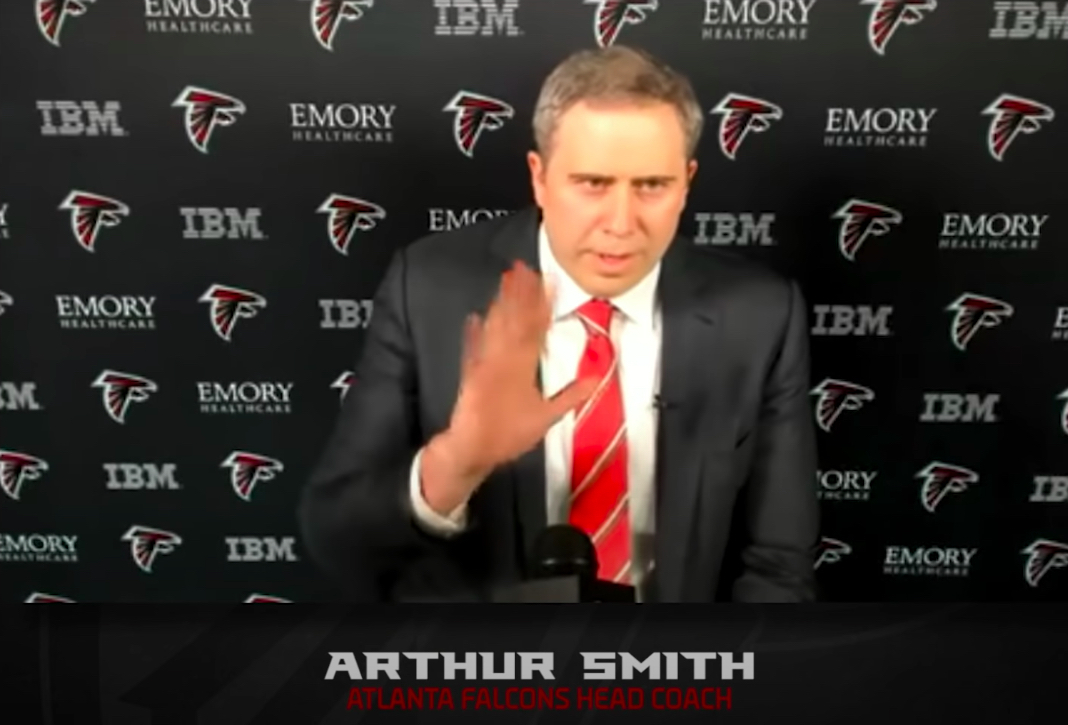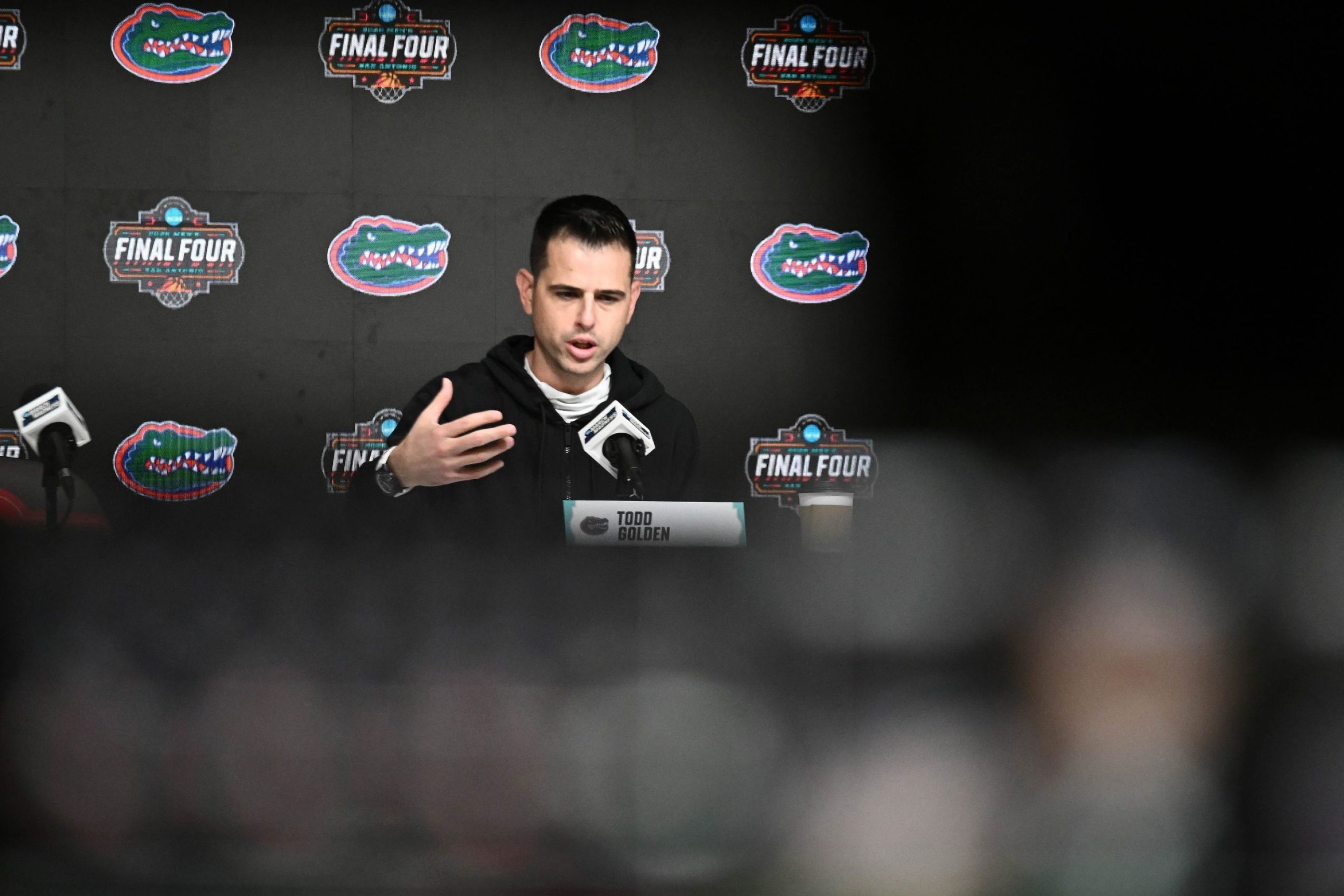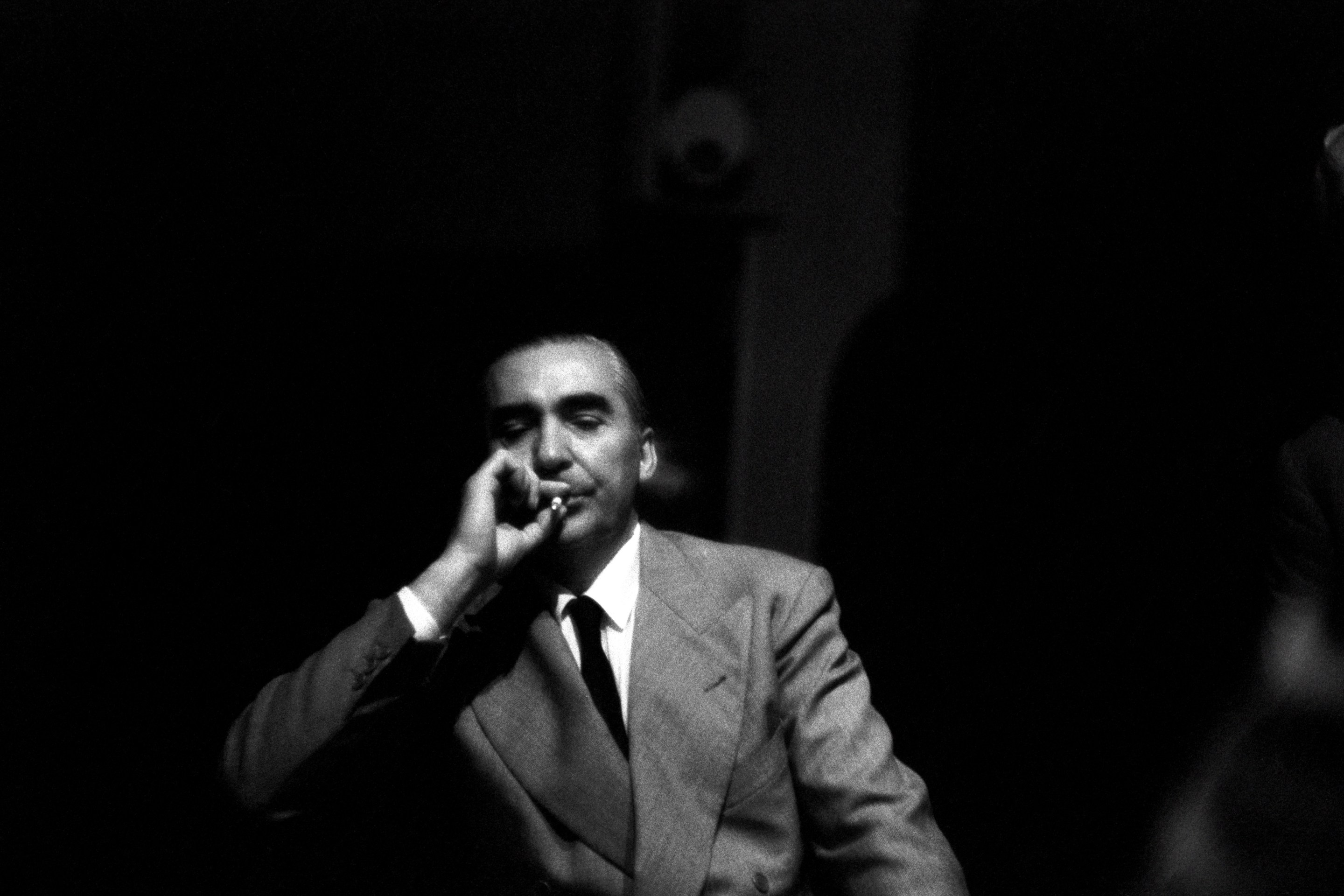You might think that the son of Frederick W. Smith, the FedEx founder and billionaire, would have a smooth path to success in just about any career field he'd choose, what with the access to the best education and healthcare, built-in connections to other rich people, and no worry in any meaningful way about pesky things like paying bills. But today, ESPN wondered: What if those privileges were reframed as obstacles?
In a feature on the Atlanta Falcons' new head coach Arthur Smith, ESPN reporter Michael DiRocco reports that, actually, Smith successfully grinding his way through the ranks, in spite of his family's immense wealth and power, is a testament to his work ethic and definitely has nothing to do with his father's minority ownership of an NFL team.
DiRocco's article, with the headline "How Arthur Smith forged a path separate from billionaire dad to become Atlanta Falcons coach," chronicles how Smith left the Washington Football Team in 2008 after two years as defensive quality control coach. Smith departed not because "he felt as though he wouldn’t eventually move up in the organization," but so he could "do it away from his family’s connections to the Washington Football Team," which is not only partially owned by his father, but plays in a stadium sponsored by his dad's company.
“We all have connections that help you," Smith tells ESPN, as though his multi-billionaire pop with NFL clout is in the same realm as some schmo's LinkedIn endorsements. "But with my dad’s involvement up there, and playing in FedEx Field, I just felt like when you’re the quality control it’s fine. You’re at the entry level and they’re hard jobs to get and I was lucky to be in that but to legitimately move up I knew I had to get away."
Smith is right: Jobs in the NFL are hard to get. So how did a guy with one year of graduate assistant experience at North Carolina go to a pro football team's staff so quickly? DiRocco shows no curiosity in answering that important question, instead framing a coach leaving one football gig for another as some sort of unusually risky jump that Smith was brave and noble enough to make, instead of just another transaction in the NFL's regular coaching carousel. "It might have been a hard move to make," DiRocco writes, "but it has paid off by starting him on the path to becoming the 18th head coach in Atlanta Falcons' history."
The article, which ostensibly is supposed to cover Arthur Smith's journey to becoming the Falcons' head coach, skates past any detail of how he actually broke into the NFL. Instead, DiRocco devotes a lot of words on how Smith was able to work hard and overcome his association with his wealthy family:
Don’t misunderstand: Smith isn’t estranged from his family or ungrateful for all the advantages that come with being the son of a billionaire. (Fred Smith is worth $5.8 billion, according to Forbes.) It just was important to him to put in the work and be judged on what he accomplished, and not have anyone influenced by anything else.
Smith, who was with the Tennessee Titans from 2011 to 2020, describes it as having a "chip on his shoulder." "I always was put off by people whose family or parents had accomplished something and [they] thought they had accomplished something," he says, presumably with a straight face.
DiRocco is more than happy to repeat Smith's assertion that "I never thought there was anything special about me" just because he was born into an American dynasty. It's almost certainly true that there is nothing special about Smith himself; the same can't be said for all the opportunities he's been afforded by his birthright.
There are no quotes from players coached by Smith, but his old high school football coach Dan Paro and Falcons owner Arthur Blank give him heaps of praise. To solidify Smith's reputation for humility, the article takes a trip back to his academic years. "In high school at the prestigious Georgetown Prep in Bethesda, Maryland, Smith didn’t flaunt his family’s wealth," DiRocco writes of the man who is now an NFL head coach. And why would Smith need to?
[ESPN]






